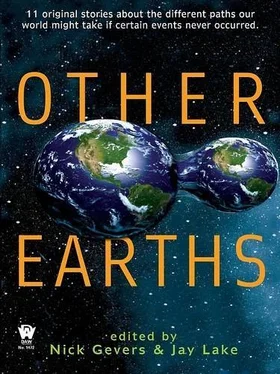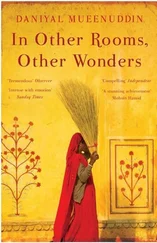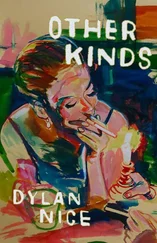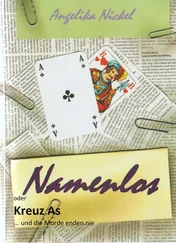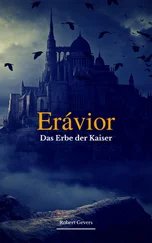Atahualpa expressed mild interest in this. He said the worship of the sun was a global phenomenon. The Incas’ own sun god was called Inti. Perhaps Inti and Christ-Ra were mere manifestations of the same primal figure.
The procession moved on.
“ ‘Cook’,” Dreamer whispered. He was more interested in Jenny than in theology. “That’s a funny sort of name. Not Frankish, is it?”
“I don’t know. I think it has an Anglais root. My family are Anglais, from the north of Grand Bretagne.”
“You must be rich. You’ve got to be either royal or rich to be in this procession, right?”
She smiled. “Rich enough. I’m at court as part of my education. My grandfathers have been in the coal trade since our ancestor founded the business two hundred years ago. He was called James Cook. My father’s called James too. It’s a mucky business but lucrative.”
“I’ll bet. Those Watt engines I see everywhere eat enough coal, don’t they?”
“So what do your family do?”
He said simply, “We serve the Inca.”
The procession reached a chapel dedicated to Isaac Newton, the renowned alchemist and theologian who had developed a conclusive proof of the age of the Earth. Here they prayed to their gods, the Inca prostrating themselves before Inti, and the Christians kneeling to Christ.
And the Inca servants came forward with their Orb of the Unblinking Eye. It was a sphere of some translucent white material, half as tall as a man; the servants carried it in a rope netting and set it down on a wooden cradle before the statue of Newton himself.
Atahualpa turned and faced the procession. He may have smiled; his facemask creased. He said through his interpreter: “Once it was our practice to plant our temples in the chapels of those we sought to vanquish. Now I place this gift from my emperor, this symbol of our greatest god, in the finest church in this province.” And, Jenny knew, other Inca parties were handing over similar orbs in all the great capitals of Europe. “Once we would move peoples about, whole populations, to cut them away from their roots and so control them. Now we welcome the children of your princes and merchants, while leaving our own children in your cities, so that we may each learn the culture and the ways of the other.” He gestured to Alphonse.
The prince bowed, but he muttered through his teeth, “ And get hold of a nice set of hostages.”
“Hush,” Jenny murmured.
Atahualpa said, “Let this globe shine for all eternity as a symbol of our friendship, united under the Unblinking Eye of the One Sun.” He clapped his hands.
And the orb lit up, casting a steady pearl-like glow over the grimy statuary of the chapel. The Europeans applauded helplessly.
Jenny stared, amazed. She could see no power supply, no tank of gas; and the light didn’t flicker like the flame of a candle or a lamp but burned as steady as the sun itself.
With the ceremony over, the procession began to break up. Jenny turned to the boy, Dreamer. “Are you sailing on the Viracocha ?”
“Oh, yes. You’ll be seeing a lot more of me. The emissary has one more appointment, a ride on a Watt-engine train to some place called Bataille—”
“That’s where the Frankish army defeated the Anglais back in 1066.”
“Yes. And then we sail.”
“And then we sail,” Jenny said, fearful, excited, gazing into the dark, playful eyes of this boy from the other side of the world, a boy whose land didn’t even exist in her imagination.
Alphonse glared at them, brooding.
The dignitaries were still talking, with stiff politeness. Atahualpa seemed intrigued by Newton’s determination of the Earth’s age. “And how did this Newton achieve his result? A study of the rocks, of living things, of the sky? I did not know such sciences were so advanced here.”
But when Archbishop Darwin explained that Newton’s calculations had been based on records of births and deaths in a holy book, and that his conclusion was that the Earth was only a few thousand years old, Atahualpa’s laughter was gusty, echoing from the walls of the cramped chapel.
Alphonse’s party, with Jenny and other companions and with Archbishop Darwin attached as a moral guardian, boarded the Inca ship.
The Viracocha , Jenny learned, was named after a creator god and cultural hero of the Inca. It was as extraordinary inside as out, a floating palace of wide corridors and vast staterooms that glowed with a steady pearl light. Jenny was quite surprised when crew members went barreling up and down the corridors on wheeled carts. The Inca embraced the wheel’s obvious advantages, but for ceremonial occasions they walked or rode their animals, as their ancestors had done long before their age of exploration. The wheeled carts, like the ubiquitous lights, had no obvious power source, no boiler or steam stack.
The Frankish and Anglais were allowed to stay on deck as the great woollen sails were unfurled and the ship pulled away from Londres, which sprawled over its banks in heaps of smoky industry. Jenny looked for her family’s ships in the docks; she was going to be away from home for years, and the parting from her mother had been tearful.
But before the ship had left the Thames estuary the guests were ordered below deck, and the hatches were locked and sealed. There weren’t even any windows in the ship’s sleek hull. Their Inca hosts wanted to save a remarkable surprise for them, they said, a surprise revealed to every crew who crossed the equator, but not until then.
And they were all, even Alphonse, put through a program of inoculation, injected with various potions and their bodies bathed with a prickly light. The Inca doctors said this was to weed out their “herd diseases.” All the Europeans resented this, though Darwin marveled at the medical technology on display.
At least you could see the Incas’ faces, however, now that they had discarded their masks. They were a proud-looking people with jet black hair, dark skin, and noses that would have been called Roman in Europe. None of the crew was particularly friendly. They wouldn’t speak Frankish or Anglais, and they looked on the Europeans with a kind of amused contempt. This infuriated Alphonse, for he was used to looking on others in precisely that way.
Still, the ship’s sights were spectacular. Jenny was shown the great smelly hold where the llamas were kept during the journey. And she was shown around an engine room. Jenny’s family ran steam scows, and she had expected Watt engines, heavy, clunky, soot-coated iron monsters. The Viracocha ’s engine room was a pristine white-walled hall inhabited by sleek metal shapes. The air was filled with a soft humming, and there was a sharp smell in the air that reminded her of the seashore. These smooth sculptures didn’t even look like engines to Jenny, and whatever principle they worked on had nothing to do with steam, evidently. So much for her father’s fond hopes of selling coal to the mighty Inca empire!
Despite such marvels, Jenny chafed at her confinement below decks. What made it worse was that she saw little of her friends. Alphonse was whisked off to a program of study of Inca culture and science, mediated by Darwin. And in his free time he monopolized Dreamer for private language classes; he wanted to learn as much Quechua as he could manage, for he did not trust the Inca.
This irritated Jenny more than she was prepared to admit, for the times she relished most of all were the snatched moments she spent with Dreamer.
One free evening Dreamer took her to the navigation bay. The walls were covered with charts, curves that might have shown the trajectory of the sun and moon across the sky, and other diagrams showing various aspects of a misty-gold spiral shape that meant nothing to Jenny. There was a globe that drew her eye; glowing, painted, it was covered with unfamiliar shapes, but one strip of blue looked just like a map of the Mediterranean.
Читать дальше
